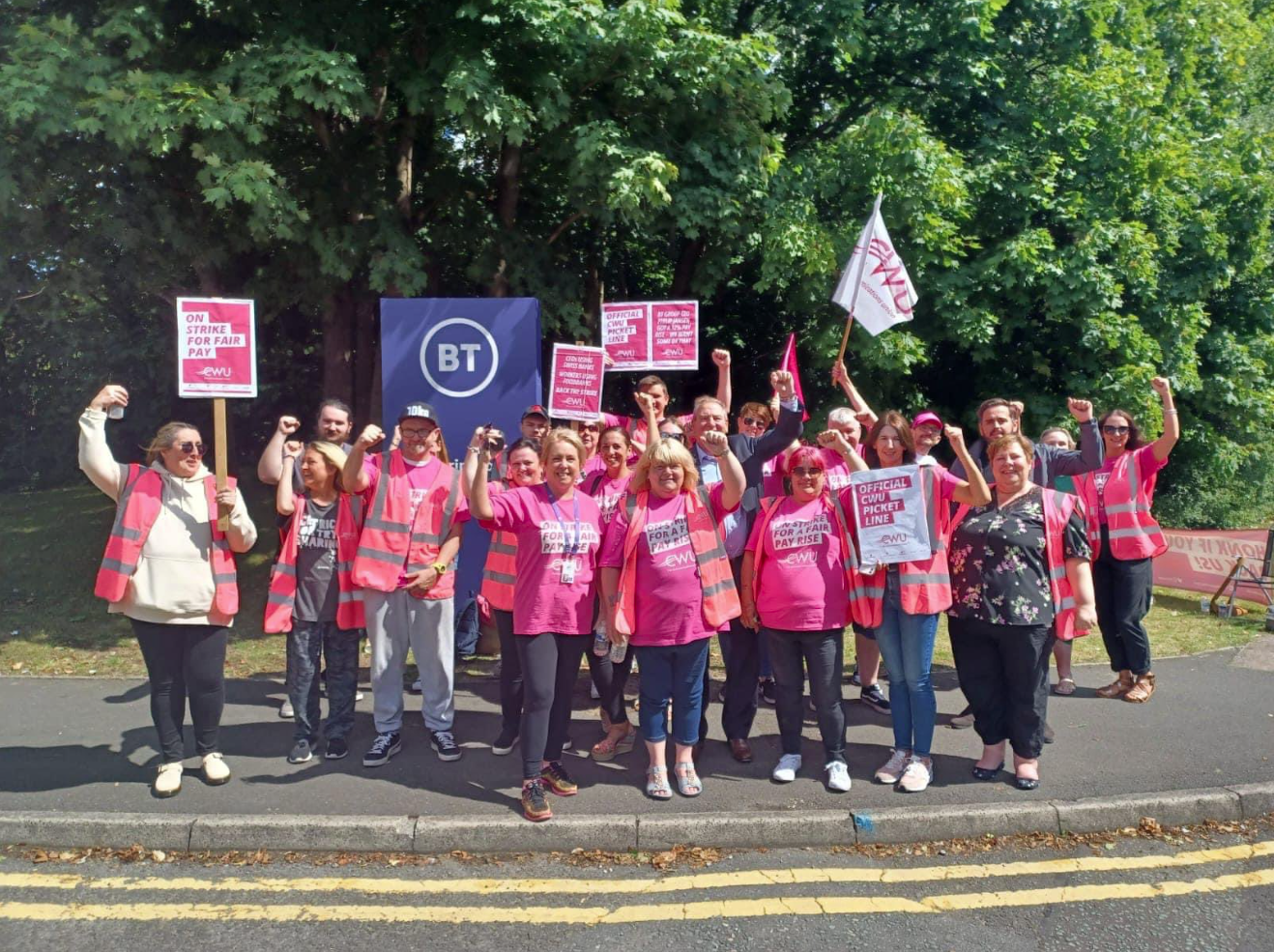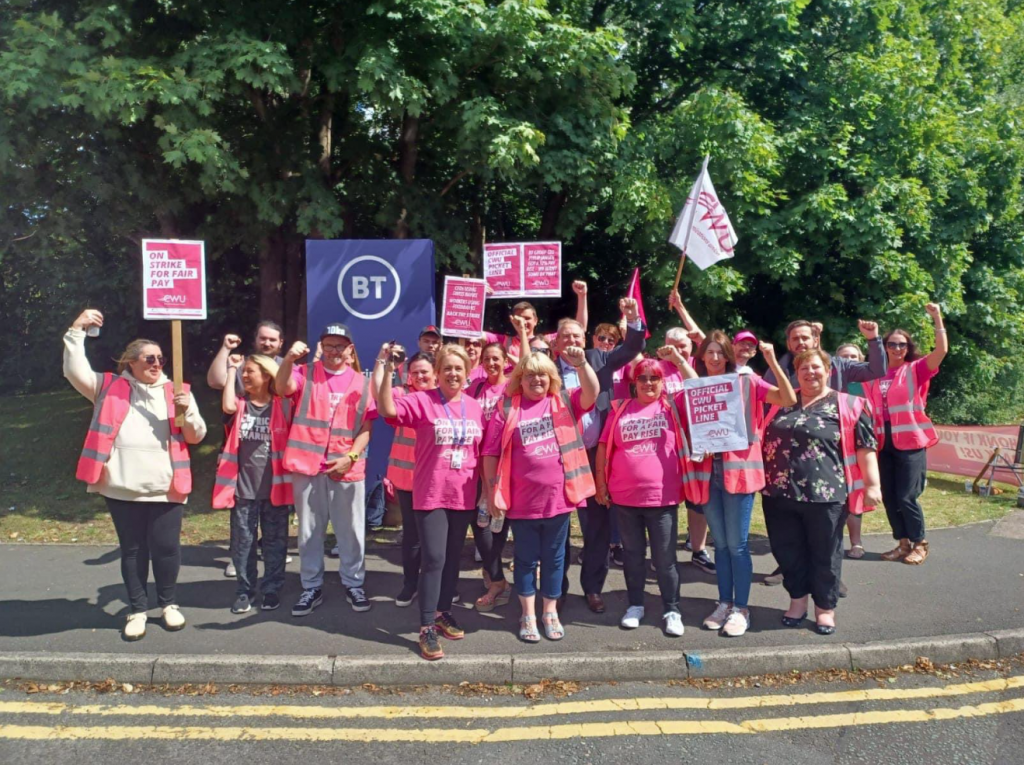Thousands of BT and Openreach workers went on a nationwide strike for the second day yesterday (Monday 1 August) over pay.
The Communications Workers Union (CWU) strike, which includes call centre workers and engineers, lasted 24 hours following that of Friday’s (29 July)
In response to the so-called ‘cost of living crisis’, CWU asked that picketers bring food to be donated to local food banks.
CWU have condemned the executive of BT Group, Phillip Jansen, for terminating pay discussions and rolling out a meagre pay increase of £1,500 to all employees whilst increasing his earnings by 32% up to £3.5 million and giving similar payment plans to senior executives.
Despite the ‘economic crisis’, Chief Financial Officer Simon Loweth received a 25% pay increase to £2.2 million, for example.
The union has unsurprisingly rejected a one-off pay offer and a 2.5-7% pay increase, which amounts to a pay cut with inflation set to reach over 11% later this year.
CWU General Secretary Dave Ward has said: “We’re asking for a pay rise in line with inflation which is going up and will probably be at ten per cent by the end of the year.”
The BT Group has stated that it will not be reopening the 2022 pay review and claims that they cannot afford to give staff a reasonable pay offer, despite giving shareholders £760 million and reporting £400 million in profits for the first quarter of this year and a total of £1.2 billion profits in the year ending 31 March, 2022. This year’s profits have been boosted by price increases enforced on customers earlier this year.
The strike is the first national telecoms action since 1987, affecting the widespread introduction of ultra-fast broadband in people’s homes.
A BT spokesperson commented on the industrial action: “We will work to minimise any disruption and keep our customers and the country connected. We have tried and tested processes for large scale colleague absences to minimise any disruption for our customers and these were proved during the pandemic.”
But it’s unlikely that BT were able to minimise disruption due to the scale of the strike.
BT and Openreach workers were considered key workers during the pandemic, ensuring the rest of the workforce could work from home and maintaining emergency response lines. The latest wave of strikes from the CWU, and also Unite and GMB, have highlighted the neglect such key workers face at the hands of greedy bosses. If the demands of CWU workers aren’t met, more strikes will continue.
Next in the calendar of this momentous summer, we’ll see Royal Mail staff on strike after 115,000 workers voted to do so over pay, which could be the biggest industrial action taken by CWU members this year. Figures show that 97.6% voted to go on strike with a 77% turnout but dates are yet to be set.
Solidarity to the striking workers up and down the country!
Georgina Andrews, is the Student Officer of the YCL




